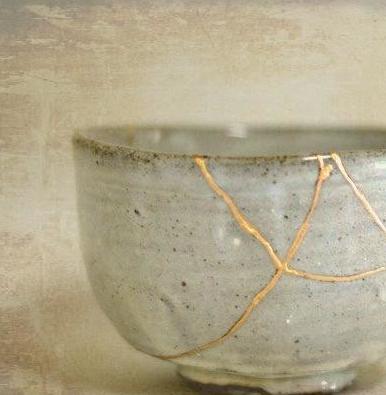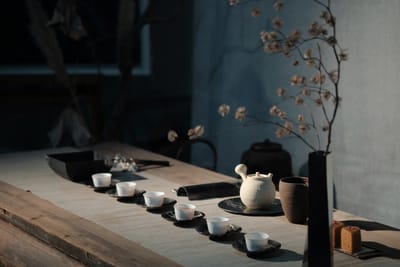Wabi Sabi


Kintsugi is a good example of Wabi-Sabi: cracked pottery is fixed by filling with gold dusted lacquer as a way to show it's delicate beauty - the fault is not hidden but highlighted.
In Zen philosophy, there are 7 aesthetic principles for achieving Wabi-Sabi:
- Fukinsei (不均斉): asymmetry, irregularity
- Kanso (簡素): simplicity, clean and neat
- Koko (考古): basic, austere, mature, reduction to bare bones
- Shizen (自然): without pretense, natural
- Yugen (幽玄): subtly profound grace, not obvious, simlpe elegance
- Datsuzoku (脱俗): unbounded by convention, free
- Seijaku (静寂): tranquility, silence
Japanese Tea ceremony - The Way of Tea is also referring to Wabi-Sabi. The four principles of the practice are harmony, respect, purity and tranquility, aiming to awaken the senses and unite the mind and body.


